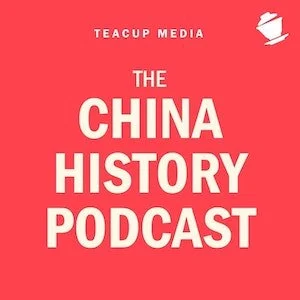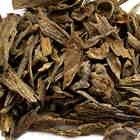Ep. 301 | The History of the Chinese Jamaicans
For this 301st CHP episode, we cover some more great Overseas Chinese history. Rather than biting off more than I could chew by taking on the bigger story of Chinese emigration to the Caribbean, the focus will be on the island nation of Jamaica. The Chinese Jamaican story is another Hakka story. Contained in this episode is just one sliver of the history of this great and musical nation.
I hope this episode piques your interest. If you want to learn more about Jamaica you're in luck. Lots of great resources out there. I hope I can visit there one day and see it for myself. I flipped a coin to decide what pronunciation of "Caribbean" I would use for the episode. Happy Memorial Day Weekend to all fellow Yanks.
Listen On Your Favorite Podcast Player
Terms in Episode
| Pinyin/Term | Chinese | English/Meaning |
|---|---|---|
| Hakka | 客家人 | The Hakka's or Hakka Chinese, are a Han Chinese subgroup whose ancestral homes are chiefly in the Hakka-speaking provincial areas of Guangdong, Fujian, Jiangxi, Guangxi, Sichuan, Hunan, Zhejiang, Hainan, Guizhou, as well as Taiwan. |
| Guangdong | 广东 | Coastal province in southern China |
| Dōngguǎn | 东莞 | Major manufacturing center just to the east of Guangzhou (north of Shenzhen) |
| Huìyáng | 惠阳 | District of Huizhou to the southeast of Guangzhou and northeast of Shenzhen |
| Bǎo’ān | 宝安 | Bao'an is one of the nine districts comprising the city of Shenzhen. It is one of the districts formerly lying outside the Shenzhen Special Economic Zone. |
| Luó Xiánglín | 罗祥林 | 1906-1978, Also known as Lo Hsiang-lin. He was one of the most renowned researchers in Hakka language and culture. His pioneering research in Hakka genealogy showed that the Hakka are in fact Han Chinese. |
| Jìn | 晋朝 | Chinese dynasty that lasted from 266-420 |
| Wǔhú | 五胡 | The so-called "Five Barbarians", a Chinese historical exonym for the five ancient non-Han peoples who immigrated to northern China in the Eastern Han dynasty, and then overthrew the Western Jin dynasty and established their own kingdoms in the 4th–5th centuries. They included the Xiongnu, Jie, Xianbei, Qiang, amd Di people. |
| Huáng Cháo Rebellion | 黄巢起义 | A major rebellion in China that lasyed 875-884 and was led by Huang Chao. This rebellion, more than anything else led to the demise of the Tang Dynasty |
| Tang Dynasty | 唐朝 | Chinese dynasty that lasted from 618-907 with a short break from 690-705 when Wu Zetian was Empress of China |
| Jürchen | East AsianTungusic-speaking peoples, descended from the Donghu people. They lived in the northeast of China, later known as Manchuria, before the 18th century. The Jurchens were renamed as Manchus in 1635 by the Qing ruler Hong Taiji. | |
| Ming | 明朝 | Dynasty in China that lasted 1368-1644 |
| Qing | 清朝 | Dynasty in China that lasted 1644-1912 |
| Emperor Kāngxī | 康熙帝 | Long-reigning Qing emperor who ruled China from 1661-1722 |
| Hǎijìn | 海禁 | The Hăijìn "Sea Ban" was a series of related isolationist policies restricting private maritime trading and coastal settlement during most of the Ming Empire and early Qing Empire. The early Qing dynasty's anti-insurgent "Great Clearance" had a devastating effect on communities along the south and southeast China coast. |
| Punti-Hakka Clan Wars | 土客械斗 | A long-lasting conflict between the Hakka and Cantonese people in Guangdong, China between 1855 and 1867. The wars resulted in roughly a million dead with many more fleeing for their lives. |
| Chee Kung Tong | 致公堂 | 1887 the Chee Kung Tong was established to serve the interests of the Chinese community in Jamaica. Initially they were known as the Chinese Freemason Society. There were Chee Kung Tong's established in many Chinese communities around the world |
| Chin Tung-kao | Founder (in 1891) of the Chinese Benevolent Society (later Association) in Kingston, Jamaica. The aim of the society was to offer humanitarian and social aid to the Chinese Jamaicans, as well as protecting Chinese customs and preserving Chinese ethnic identity” | |
| Chin Lenn-kao | Brother of Chin Tung-kao | |
| Chin Pa-kung | Also known as Robert Jackson Chin, considered the pioneer in the dry goods retail/wholesale business in Jamaica | |
| kuai-loh | 鬼佬 | A term used by Cantonese for Western people. |
| Rìyòngpǐn | 日用品 | Daily use articles |
| Fong Sue | The Chinese Jamaican man in Ewarton who played a role in the anti-Chinese riots of July 1918 | |
| Gah San | 挂山 | Pinyin: Guà Shàn, the Hakka pronunciation of the Qingming Holiday where the faithful honor their ancestors and sweep their graves |
| Qīngmíng | 清明节 | See above |
| Zhōngguó Huìguǎn | 中国会馆 | General name for the Chinese Consolidated Benevolent Association |
| Vincent "Randy" Chin | 1937-2003, Kingston, Jamaica-born record producer and label owner who ran the Randy's shop, recording studio, and record label, later moving to New York City and setting up the VP Records empire, now the world's largest independent label and distributor of Caribbean music. | |
| Patricia Chin | Wife and business partner of Randy Chin. She was also known as Miss Pat and was an influential figure in the reggae community and the woman who helped popularize the genre in the United States and around the world. Patricia was born to a Chinese mother and an East Indian father | |
| Byron Lee | 1935-2008, Born Byron Aloysius St. Elmo Lee. He was a Jamaican musician, record producer, and entrepreneur, best known for his work as leader of Byron Lee and the Dragonaires. | |
| Justin Yap | Justin Yap was a Chinese Jamaican who set up the Top Deck sound system with his brother Ivan in the Barbican district of Kingston, in the back of his parent’s ice-cream parlour. In 1967, Yap emigrated to the USA and a year later was serving in Vietnam. On his return he worked in computing and as a taxi cab driver up to his death from liver cancer in July 1999 | |
| Leslie Kong | 1933-1971, Leslie Kong was an influential Chinese-Jamaican reggae producer. Leslie and his two older brothers Cecil and Lloyd ran a restaurant, ice cream parlour and record shop called Beverley's in Orange Street, Kingston. In 1961, he encountered a young Jimmy Cliff outside of his shop singing a song he had written called "Dearest Beverley," in the hopes that the mention of the establishment would convince Kong to record him. This encounter led Kong to launch his own record label, Beverley's, and to record Cliff's song, launching Cliff's career in the process. | |
| Bunny "Striker" Lee | 1941-2020, Edward O'Sullivan Lee OD, better known as Bunny "Striker" Lee, was a Jamaican record producer. He was known as a pioneer of the United Kingdom reggae market, licensing his productions to Trojan Records in the early 1970s, and later working with Lee "Scratch" Perry and King Tubby. | |
| Mikey Mao Chung | 1950-2021, Michael Chung, also known as Mao Chung, was a Jamaican musician who played keyboards, guitar and percussion instruments. He was also an arranger and record producer of Jamaican music, and worked with a wide array of musicians, notably Scratch Perry and Sly & Robbie | |
| Ernest Hoo Kim | 1842-2018, Joseph "Jo Jo" Hoo Kim was a Jamaican reggae record producer best known for his productions in the 1970s at his Channel One Studios |

















his all took place in the final moments of the Warlord Era, right after the Central Plains War. This act perpetrated by warlord Sun Dianying 孙殿英 epitomized the venality of these men.